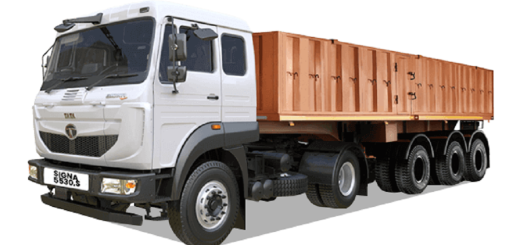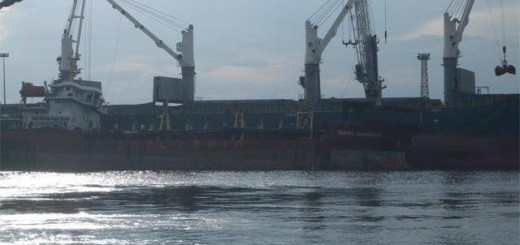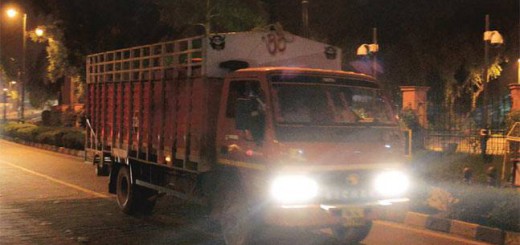GST or Less traffic: what led to cut inter-State truck travelling time?
The travelling time is down by 9-16 per cent on different inter-State routes across the country after the implementation of GST!!!
Introduction of GST and the resulting withdrawal of commercial tax check-posts by 22 States have increased the pace of inter-State road cargo movement but not as significantly as was initially envisaged.
And, the chances are, the gains will reduce further once the cargo movement picks up. According to the Indian Foundation of Transport Research and Training (IFTRT), barely 70 per cent of the 13 lakh trucks with national permit are plying as cargo movement is down by 40-50 per cent.
Figures available with a prominent logistics provider to top e-commerce firms suggest the travelling time is down by 9-16 per cent on different inter-State routes across the country.
Delhi-Kolkata traffic is among the maximum gainers as travelling time is down by 7 hours or 14 per cent, followed by Mumbai-Noida 11 per cent (five hours), Chennai-Mumbai 10 per cent (four hours) and Bengaluru-Mumbai (two hours) nine per cent.
SK Mittal, President of the All-India Motor Transport Congress (AIMTC) and owner of South Assam Carriers Pvt Ltd, thinks much of this reduction in travelling time is contributed by low traffic of goods vehicles on the highways due to fall in cargo movement.
Raman Khosla, chairman of highways committee of AIMTC and managing director of Mumbai-based Cargo Carriers India Ltd, thinks the net gain on the busy Delhi-Mumbai trunk route will not be more than two to three hours.
Rent-seeking
Khosla says while commercial tax check posts have been withdrawn, State transport department — commonly referred to as RTO — check posts continue to exist, leading to stoppage of vehicles and rampant rent-seeking. Only Chhattisgarh and Odisha have done away with such check posts.
According to him, a truck pays approximately ₹2,000 to State transport officials for one-way movement between Delhi and Mumbai. This is five per cent of the ₹39,000 (at ₹2,600 a tonne) rental charged by a 15-tonne truck for carrying goods between the two cities.
Ramesh Agarwal of the Delhi-based Agarwal Packers and Movers says the extortion was among the highest in Chhattisgarh where transport officials used to charge inter-state carriers ₹1,000 each for every trip.
The malpractices stopped following a media expose soon after the introduction of GST. “Right now, we are not paying anything in Chhattisgarh,” he said.
Fall in parcel booking
Interestingly, according to Agarwal, following the introduction of GST, a good majority of the States have either done away with or simplified the procedure for transit cargo movement. The prominent exception in this list is Gujarat. This has inspired Bihar to impose fresh filing guidelines for transit cargo.
SP Singh, senior fellow of IFTRT, points out that over the last fortnight, retail parcel booking and (or) part load freight charges have witnessed unprecedented slump. This, he says, is largely due to disappearance of cargo that used to avoid taxes in the past.
“Movement of under-reported consignments – particularly by MSME, wholesale and distribution businesses – has virtually stopped on inter-State routes except in Rajasthan, MP, Bihar, Chhattisgarh, Gujarat, parts of Maharashtra and North- East India;” he said.
These consignments, in the past, were charged high tariff (on kg basis) by the booking agencies as a premium to save tax in the VAT regime.
Singh cautions that unless the GST authorities are fast in introducing e-way bill (transit pass) to ensure a system for monitoring adherence to rules; tax dodging may resume in collusion with State level commercial tax department officials.
Source: https://goo.gl/iTRCAj




Recent Comments